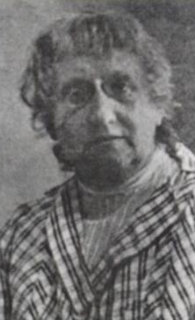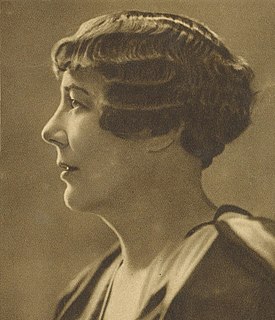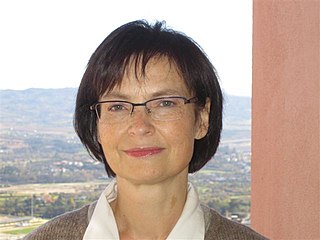 W
WJoanna Bator is a Polish novelist, journalist, feminist and academic. She specializes in cultural anthropology and gender studies. She is the recipient of the 2013 Nike Award.
 W
WZofia Chądzyńska or Sophie Bohdan, was a Polish writer and translator of the Iberoamerican literature. Her first book was published in French under a pseudonym of Sophie Bohdan, entitled "Comme l'ombre qui passe", Publisher: Paris : Calmann-Lévy, 1960. Later she was publishing in Polish under her original name Zofia Chądzyńska.
 W
WMarya Chéliga-Loevy was a Polish author, playwright, feminist and pacifist. She was born in Poland but spent much of her life in France.
 W
WSylwia Chutnik is a Polish novelist, writer, feminist and social activist.
 W
WMaria Dąbrowska was a Polish writer, novelist, essayist, journalist and playwright, author of the popular Polish historical novel Noce i dnie written between 1932 and 1934 in four separate volumes. The novel was made into a film by the same title in 1975 by Jerzy Antczak. Dąbrowska was awarded the prestigious Golden Laurel of the Polish Academy of Literature in 1935. She was nominated for the Nobel Prize in Literature five times. She translated Samuel Pepys' Diary into Polish.
 W
WAłbena Grabowska is a Polish writer and neurologist.
 W
WKatarzyna Grochola is a Polish writer and journalist.
Gaja Grzegorzewska is a Polish novelist. She is the author of crime novels about a female private detective, Julia Dobrowolska: Żniwiarz, Noc z czwartku na niedzielę, Topielica and Grób (2012). Finished VIII High School in Cracow and Cinematography Studies on Jagiellonian University.
 W
WKlementyna Hoffmanowa, born Klementyna Tańska was a Polish novelist, playwright, editor, translator, teacher and activist. She was the first woman in Poland to support herself from writing and teaching, as well as one of Poland's first writers of children's literature.
 W
WMaria Ilnicka, maiden name Majkowska was a Polish poet, novelist, translator and journalist. She took part in the January Uprising against Russia, as archivist of Polish National Government. After the collapse of the uprising, for short time, she was imprisoned. Ilnicka was advocate of feminism and organic work. In 1865, she was leading redactor weekly magazine for woman “Bluszcz”.
 W
WMaria Konopnicka was a Polish poet, novelist, children's writer, translator, journalist, critic, and activist for women's rights and for Polish independence. She used pseudonyms, including Jan Sawa. She was one of the most important poets of Poland's Positivist period.
 W
WZofia Kossak-Szczucka was a Polish writer and World War II resistance fighter. She co-founded two wartime Polish organizations: Front for the Rebirth of Poland and Żegota, set up to assist Polish Jews to escape the Holocaust. In 1943, she was arrested by the Germans and sent to Auschwitz Concentration Camp, but survived the war.
 W
WUrszula Kozioł is a Polish poet. In 2011, she was a recipient of the Silesius Poetry Award.
 W
WKatarzyna Krenz is a Polish writer, poet and painter.
 W
WBlanka Lipińska is a Polish cosmetologist and author best known for her erotic trilogy beginning with 365 Dni. The first novel was adapted into a 2020 film for which she co-wrote the screenplay and in which she has a cameo.
 W
WJadwiga Łuszczewska was a Polish poet and novelist. She was born and died in Warsaw.
 W
WDorota Masłowska is a Polish writer, playwright, columnist and journalist.
 W
WHelena Mniszek was a Polish novelist. She was born in Volhynia and died in Sabnie. Her debut novel Trędowata written in 1909 brought her to prominence.
 W
WMałgorzata Musierowicz is a popular Polish writer, author of many stories and novels for children and teenagers, but read with pleasure by adults too. She is the sister of poet and translator Stanisław Barańczak.
 W
WEliza Orzeszkowa was a Polish novelist and a leading writer of the Positivism movement during foreign Partitions of Poland. In 1905, together with Henryk Sienkiewicz, she was nominated for the Nobel Prize in Literature.
 W
WHanna Ożogowska was a Polish novelist and poet.
 W
WZofia Posmysz-Piasecka is a Polish journalist, novelist, and author. She was a resistance fighter in World War II and survived imprisonment at the Auschwitz and Ravensbrück concentration camps. Her autobiographical account of the Holocaust in occupied Poland Passenger from Cabin 45 became the basis for her 1962 novel Passenger, subsequently translated into 15 languages. The original radio drama was adapted for an award-winning feature film, while the novel was adapted into an opera by the same title with music by Mieczysław Weinberg.
 W
WMałgorzata Rejmer is a Polish novelist and short story writer.
 W
WMaria Rodziewiczówna was a Polish writer, among the most famous of the interwar years. Her works often addressed patriotism, idealized rural life, and praised the countryside and peasantry. Rodziewiczówna is also noted for advocating for women's rights. Her writings include "Wrzos" ("Heather"), "Dewajtis", "Lato leśnych ludzi", "Straszny dziadunio".
 W
WŻanna Słoniowska is a Polish novelist and journalist. She was the first winner of the Znak literary prize for her novel The House with the Stained-Glass Window and a Conrad Prize winner.
 W
WEva Stachniak is a Polish-Canadian novelist.
 W
WOlga Nawoja Tokarczuk is a Polish writer, activist, and public intellectual who has been described in Poland as one of the most critically acclaimed and commercially successful authors of her generation. In 2018, she won the Man Booker International Prize for her novel Flights. In 2019, she was awarded the 2018 Nobel Prize in Literature.
 W
WMagdalena Tulli is a Polish novelist and translator, one of Poland's leading writers.
 W
WPaulina Wilkońska was a Polish novelist, editor, and diarist.
 W
WStefania Zahorska, pseudonym Pandora, was a Polish art historian.
 W
WMaria Julia Zaleska de domo Perłowska was a Polish writer, prosaist and publicist. Editor of weekly magazine Wieczory Rodzinne [Family evenings].
 W
WMaria Gabriela Stefania Korwin-Piotrowska (1857–1921), known as Gabriela Zapolska, was a Polish novelist, playwright, naturalist writer, feuilletonist, theatre critic and stage actress. Zapolska wrote 41 plays, 23 novels, 177 short stories, 252 works of journalism, one film script, and over 1,500 letters.
 W
WNarcyza Żmichowska pronounced [narˈt͡sɨza ʐmʲiˈxɔfska], also known under her popular nom de plume Gabryella, was a Polish novelist and poet. She is considered a precursor of feminism in Poland.